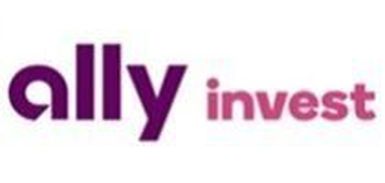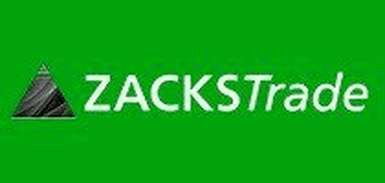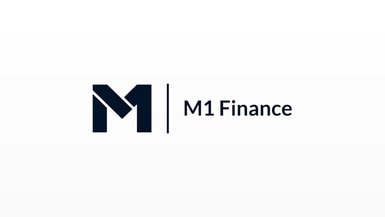Let’s say you’ve graduated from college and have landed a prestigious, high-paying job. Even if you’re working hard and receiving bonuses every year, you won’t be maximizing your earnings if you don’t handle your money correctly.
You shouldn't get comfortable with just earning money. If you fail to invest your money, you will miss out on thousands of dollars in potential earnings over the years.
Even stowing it away in your savings account won't do much, as the average interest rate on a savings account is just 0.1%.
By placing some of your earnings on Wall Street, you can grow your portfolio with little effort. Investing in the stock market can even earn you money while you sleep.
What to Do If You’re Nervous to Invest
A lot of people are hesitant to become investors. They may not understand which investment vehicles are right for them and feel intimidated by the overwhelming amount of information available. They may think that investing in the stock market is a risky venture to take on or only for the very wealthy.
These misconceptions couldn't be further from the truth. The stock market is an excellent option for everyday people with 9-to-5 jobs looking to expand their wealth.
Every amateur investor will have a different launching point. You may have a rainy-day fund of $4,000 or $5,000 that you want to get started. Or you may only be able to set aside $10 or $20 for your investments each week.
For as little as $3 per month, you can get started investing using Stash. Read our full review here.
If you have the interest and education to invest, no amount is too little. So in this article, beginners can learn everything they need to know about how to invest in the stock market.
What Does Investing Mean?
Most people have a general idea of what investing is, but I'd like to provide you with a formal definition.
Investing is the process of committing money to an endeavor with the hope of attaining additional profit down the line.
When you invest in the stock market, you purchase shares of companies that you think will be successful. If the companies you buy into go up in value, you can sell your shares for a nice profit.
Let's take a look at the past to understand the power of investing. CNBC did the calculations for a hypothetical scenario involving Google's stock. If you would've bought $1,000 worth of Google stock in 2009, your purchase would have been worth more than $4,800 in 2019. This amount would be a nearly 400% total return for doing nothing.
As this example demonstrates, investing in the stock market can produce substantial rewards.
Individuals can also invest outside of the stock market through means like real estate, precious metals, peer-to-peer lending, and small businesses.
However, the stock market is one of the most common ways to invest as a novice investor. So, that's what I'll be focusing on in this article.
What Kinds of Goals Can Investing Help You Reach?
Investing in the stock market can help you fund both short- and long-term financial goals like:
- Building a child's college fund
- Establishing an emergency fund
- Paying off personal debt
- Building a retirement income
- Saving for a dream vacation, car, or home
No matter what your current portfolio looks like or what your net worth is, investing in the stock market can help you feel more financially secure in general. Here's how to get started:
1. Choose an Investing Approach
The stock market is a versatile way to start investing. The different investing platforms available cater to individuals' diverse needs and preferences.
When it comes to how to invest in the stock market, you have myriad options. Whether you prefer an active, ambitious pursuit or a passive but fruitful method, there is an investment approach for you.
The different investing strategies discussed below include:
- Online brokerages
- Robo-advisors
- Employer stocks
- Split investments
Online Brokerages A Hands-On Approach
Online brokerages help individuals invest in the stock market over the internet. They demand users to have an active role in whichever assets they purchase, including:
- Stocks: A stock is an ownership share in a company. Your rate of return depends solely on the company's success and how much in dividends it pays out. Stocks are what most people associate with investing in the stock market, but stock is not the only asset you can buy.
- Bonds: Bonds are contractual obligations. Think of them as loans made to government bodies or corporations. They are generally less risky than stocks, as the recipients must legally pay you back.
- Exchange-traded funds (ETFs): An ETF is a collection of many different assets, passively managed for you.
- Mutual funds: A mutual fund is like an ETF but actively managed. Managers attempt to outperform the stock market to achieve high returns.
- Index funds: An index fund is a type of ETF or mutual fund. It will match the components of a specific financial market index. One of the most well-known index funds is the S&P 500 Index, which tracks the performance of 500 of the United States' largest companies.
Full-Service vs. Discount Brokers
Online brokerages generally split into two categories: full-service and discount.
Full-service brokerages offer a full range of financial advice relating to healthcare, retirement, and estate planning. As a full service, they don't require you to have extensive knowledge of how to invest in the stock market.
These services usually gear toward clients with higher net worth. Depending on the full-service online brokerage you use, you may face hefty per-transaction and yearly membership fees.
Discount brokerages arose in response to full-service brokerages as more affordable options for novice investors. However, they have since become the norm in the investing world.
The big appeal of online discount brokerages is their low fees. With that in mind, you should know that building your portfolio will mainly fall on you.
Discount brokerages do not leave their clients entirely on their own, though. They often offer educational materials on their websites to help clients understand how to invest their money. Online brokerages also often have mobile apps and additional features to make investing as simple as possible.
Using an online brokerage will require a lot of self-direction, perseverance, and trial-and-error. If you choose to go this route, you should have some genuine interest in the stock market and a willingness to learn how it works.
Robo-Advisors The "Set-It-and-Forget-It" Approach
Some of us are not financial gurus. If choosing your own investments seems overwhelming, you can use a robo-advisor instead.
A robo-advisor acts much like an investment manager. It selects investments for you based on factors like your financial goals and risk tolerance.
As their name implies, robo-advisors operate automatically. They use advanced software and algorithms to build your investment portfolio. As time goes on, a robo-advisor will also manage your portfolio to minimize losses and help you maximize your profits.
A robo-advisor is an excellent solution for someone who wants to take a hands-off approach to investing. While you won’t have much autonomy on the funds you’re invested in, you will know your money is in a trustworthy place.
Robo-advisors never guarantee positive returns, but they follow optimized strategies that have produced a lot of success in the past.
Investing in the Stock Market through Your Employer
One of the most passive ways to invest in the stock market is through your employer. You should take advantage of the 401(k) plan your employer offers to experience the following benefits:
- Automatic contributions: There's no need to remember to write a check or deposit money into a brokerage account. When you're a part of your company's 401(k) plan, the contributions automatically come out of your paycheck every week.
- Free money: Many companies will match your deposits, too, up to a certain dollar amount or percentage. Keep in mind that not all companies offer a matching contribution with their 401k plans. However, most companies in the U.S. offer at least some type of match, according to the U.S. Bureau of Labor Statistics.
- Control your investments: Depending on the plan your company offers; you can choose where your money goes. Most plans offer different mutual funds made up of bonds, stocks, and money market investments.
- Tax deferments: Your contributions will go into your 401(k) without any tax dollars taken out of them. Your hard-earned money can grow at a much faster rate. It won't be subject to taxes until you withdraw it at retirement when you're likely in a lower tax bracket. Related: Best Tax Software for Stock Traders
- The power of dollar-cost averaging: Dollar-cost averaging is a strategy where you invest money consistently. With a 401(k) plan, there is no need to watch for rises and dips in the stock market. Instead, your weekly or bi-weekly contributions let you participate in dollar-cost averaging by default.
Even if you work part-time, you should still investigate your company's 401(k) plan.
Splitting Your Investments
The stock market can help you reach a variety of financial goals. If you're looking to save for both retirement and more immediate goals, consider splitting your investments.
Start by setting up two different accounts: a taxable brokerage account and a tax-sheltered retirement account.
While retirement accounts can produce high returns, they come with some disadvantages like:
- Fees and penalties for early withdrawals
- Contribution limits
- Somewhat limited investment options
- Mandatory distribution requirements when you reach eligibility
On the other hand, brokerage accounts let you:
- Withdraw money at any time if you sell enough assets to cover the withdrawal amount
- Contribute as much or as little as you like (with individual brokerage companies)
- Explore unlimited investing options
2. Open an Account
Best Online Brokerages
E*TRADE was the pioneer of online brokerages. It first offered its online trading services in 1992. Soon after, TD Ameritrade came about in 1994 and hundreds of other companies in later years.
A lot of online brokerages offer similar services, which makes it difficult to distinguish between them. You should consider your preferences and needs before settling on the one that's right for you.
Below are some of the brokerages Id recommend you look into. Each has a link to the review we’ve done on them, for more information:
E*TRADE
E*TRADE offers two online trading platforms and two mobile apps for its customers to use. These different platforms and apps offer real-time quotes, customizable account management, and easy access to financial news. This way, you’re sure to have the ideal user experience. Plus, E*TRADE offers in-person customer service at any one of its 30 branches nationwide. If you’re brand new to investing, this in-person support can be a reassuring safety net.
Open an account with E*TRADE or read our full E*TRADE Review.
TD Ameritrade

You can buy, sell, and trade your stocks and other assets via TD Ameritrade's mobile app. The app also has in-depth research from financial analysts. It offers more than 20 educational videos to help you along your investing journey.
Open an account with TD Ameritrade or read our TD Ameritrade Full Review
Ally Invest

Because Ally Invest doesn’t have a minimum deposit requirement, you can get started with any amount of money. However, you will get rewards if you start with a good chunk of cash. Those who invest $10,000 with Ally Invest will receive a cash bonus. This cash return is significant, as many other brokerages won’t hand out cash bonuses unless you invest much more initially.
Open an account with Ally Invest or read our full Ally Invest review.
Zacks Trade

At some point during your investing journey, you may need to perform a broker-assisted trade. You may need to do this because of a specialty trade, a lack of internet connection, or another unforeseeable circumstance. In any case, Zacks Trade offers broker-assisted trades for no additional cost.
Open an account with Zacks Trade or read our full Zacks Trade review.
You Invest by J.P. Morgan Chase
You Invest is not limited to current Chase customers. Any interested investor can get started with You Invest. This platform only requires a $1 minimum deposit, and it has no maintenance fees. It's an excellent way for individuals to dip their toes into the investing world with little commitment.
Webull
One of Webull’s most significant advantages is that it lets you open an account quickly. If you’re eager to start investing, you can typically open a Webull account within a day. Also, Webull offers $0 commissions on stocks and ETFs.
Read our Webull Review.
Paladin Registry

Paladin Registry operates a little differently than the other online brokerages we’ve covered. It’s a free service that will connect you with a highly rated and well-experienced financial advisor. So while it’s not in itself a discount online brokerage, it’ll connect you with a financial advisor for a more personalized approach.
eToro

Disclaimer: DoughRoller is compensated if you access certain of the products or services offered by eToro USA LLC and/or eToro USA Securities Inc. Any testimonials contained in this communication may not be representative of the experience of other eToro customers and such testimonials are not guarantees of future performance or success.
eToro is a trading platform for those looking to blend investing with social media. You have access to a community of investors, and you can even copy the trades of successful investors with a proven track record. You can begin investing with only $10, and you won’t have to worry about any hidden management fees for your account. You’ll have instant access to a community of experts looking to share and discuss their trades if you’re looking for something more social.
Read our eToro Review.
Best Robo-Advisors
Robo-advisors are much newer than online brokerages. Betterment was the first robo-advisor to come out, back in 2008.
Like online brokerages, there are now hundreds of robo-advisors. If you're having trouble picking the right one for you, you should consider the factors that set each one apart.
Below are some of the best robo-advisors I recommend. With each, I’ve included a link to our full review so you can learn more.
Wealthfront

Wealthfront doesn’t follow a predetermined schedule for rebalancing. Instead, it rebalances your portfolio as your allocations drift far away from their target. This feature is one of the benefits of a robo-advisor, as you won’t have to wait around for your funds to get back on track. Plus, Wealthfront provides tax-loss harvesting to all its clients. It will offset all your losses to decrease taxes on your investment gains and even your ordinary income.
Open an account with Wealthfront or read our full Wealthfront review.
Betterment

One of the beautiful things about Betterment is that it offers FDIC-insured checking and savings accounts. Its Everyday Cash Reserve can provide you with up to 2.00% APY. While this is a relatively conservative number, it’s still better than anything you’ll find with most traditional checking and savings accounts. The Everyday Cash Reserve is a convenient place to responsibly keep your money until you decide to use Betterment’s robo-advisory features.
Open an account with Betterment or read our full Betterment review.
M1

I love how M1 lets you buy partial shares of funds and even individual stocks. This platform is a fantastic way to diversify your portfolio. Plus, you can easily spend every dollar rather than having extra money sitting unused in your portfolio.
Open an account with M1 or read our full M1 review.
Empower
(Personal Capital is now Empower)
Empower offers the most comprehensive financial planning that I’ve seen with robo-advisors. It considers your risk tolerance and personal goals, and it also accounts for any other retirement accounts. This kind of big-picture planning is what an investor needs to feel content with placing their money in a robo-advisor’s care. However, because of the account minimums, this service is best for investors with a high net worth.
Read our full Empower review.
3. Avoid Costly Mistakes
While investing in the stock market can produce great rewards, it can also cost you a lot of your wealth if you aren't careful.
Here is how to invest in the stock market without making costly, rookie mistakes:
- Look beyond the domestic market: Don't be afraid to look beyond the U.S. stock market and invest in some foreign securities.
- Don’t follow the crowd: As tempting as it may be, do not take your co-workers’ “hot stock tips.” Do your research and invest in stocks, bonds, and mutual funds that make sense for your unique goals.
- Monitor your portfolio: Don't neglect to rebalance your portfolio. Robo-advisors offer rebalancing services to ensure your portfolio remains diversified. However, you will have to learn how to do it on your own if you use an online brokerage account.
Related:
4. Focus on the Long-Term
Investing in the stock market is not a get-rich-quick scheme. It is mostly a long-term venture.
Of course, there are some exceptions in the stock of innovative companies. For example, I can look at Tesla's stock, which has experienced quite a lot of short-term growth. After some decline in early 2019, Tesla's stock experienced significant growth in the latter half of the year. Tesla surprised investors with unprecedented growth at the start of 2020. In July of 2020, it hit a record high of $1,794.99 per share.
Let's say you bought ten shares of Tesla in mid-December of 2019 when each share value was at $352.00. Even if you got rid of your shares relatively quickly in mid-January of 2020 at $550.00 per share, you could have nearly doubled your investment.
I've mentioned this short-term success to demonstrate the power of investing in the stock market.
However, most companies will not experience this kind of rapid growth. You will need to hold onto your investments for several months or longer to make significant gains in most cases.
When you participate in long-term investing, you will experience:
- Less risk: When you hold onto a stock or another financial asset for an extended period, you can recover from severe dips.
- Less stress: Those who do short-term investing must know the ins and outs of how to invest in the stock market. They must monitor the stock market's performance continuously. Keeping a watchful eye on the stock market can cause unnecessary stress. Instead of stressing over day-to-day fluctuations, long-term investing will keep your focus on long-term gains. You can dedicate your time to making more money and setting it aside for new long-haul investments.
FAQs
How do I know if I'm ready to start investing?
While you don't have to be entirely debt-free to start investing, you should be financially stable. Ideally, you should have a reliable source of income and some extra cash to set aside. If you are currently getting by on a paycheck-to-paycheck basis, you should find ways to increase your income before investing in the stock market. Before you get started with investing, you need to eliminate high-interest debt. It doesn't make sense to earn a 5-7% on your investments while accruing 20% interest or more on your credit cards. You should also have a decently sized emergency fund. Ideally, this fund should cover anywhere between three and six months of your necessary living expenses. In case you lose your job or need to foot a hefty medical bill, your emergency fund will help you get back on your feet.
Should I have concerns about black swan events?
While you don't have to be entirely debt-free to start investing, you should be financially stable. Ideally, you should have a reliable source of income and some extra cash to set aside. If you are currently getting by on a paycheck-to-paycheck basis, you should find ways to increase your income before investing in the stock market. Before you get started with investing, you need to eliminate high-interest debt. It doesn't make sense to earn a 5-7% on your investments while accruing 20% interest or more on your credit cards. You should also have a decently sized emergency fund. Ideally, this fund should cover anywhere between three and six months of your necessary living expenses. In case you lose your job or need to foot a hefty medical bill, your emergency fund will help you get back on your feet.
Can I use a financial advisor to invest in the stock market?
While a financial advisor can help you invest in the stock market, hiring one is not the most practical way. Statistically, a financial advisor is very unlikely to beat and even keep up with the stock market's overall performance. Also, it's not like they have many incentives to try. You will still have to pay a financial advisor no matter how your investments do. Financial advisors also come with a hefty price tag. Some charge for their time, and the fees can be up to $400 per hour or more. Others charge anywhere between 1-2% of your assets, which can drastically cut your earnings as your portfolio grows. While using a financial advisor to invest in the stock market was once quite common, it has become an outdated practice. Using an online brokerage or a robo-advisor is the more economical and practical route to take.
Should I put all of my eggs into one investment basket?
Even if you have unwavering faith in an up-and-coming startup, you should not throw all your money into buying as many shares as possible. Instead, you should diversify your investments and vary the asset classes you buy. To take this strategy one step further, diversify within each asset class.
Bottom Line
One of the biggest favors you can do for your future self is to invest in the stock market. No matter how generous your salary, your career can only produce a fixed income.
On the other hand, your investments in the stock market can produce exponential growth.
You'll need to do some self-reflection and evaluate your financial situation to determine the best approach. With some persistence and the right mindset, you can experience high returns on your investments.
Anyone with internet access and a couple of dollars can get started with investing.
Related: How to Invest with Little Money
Amateur and seasoned investors alike will make mistakes and experience setbacks. Do not allow them to stop you from reaching your financial goals.
Investing in the stock market is a long-term plan rather than a get-rich-quick scheme. If you stick with it, your resilience will, quite literally, pay off.
DoughRoller receives cash compensation from Wealthfront Advisers LLC (“Wealthfront Advisers”) for each new client that applies for a Wealthfront Automated Investing Account through our links. This creates an incentive that results in a material conflict of interest. DoughRoller is not a Wealthfront Advisers client, and this is a paid endorsement. More information is available via our links to Wealthfront Advisers.
Related:









